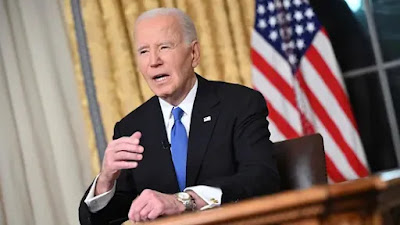Critics Say Presidential Clemency 2,000 Years Too Late
In a shocking twist of historical revisionism, President Biden has issued a last-minute presidential pardon for Pontius Pilate and the Sanhedrin, effectively settling a 2,000-year-old legal dispute. The unprecedented move comes as Biden clears his presidential desk, seemingly determined to resolve theological legal matters that have been pending since the first century.
"Sometimes, you've got to wash your hands of ancient history—literally," Biden reportedly quipped, making a clear reference to Pilate's infamous hand-washing gesture. The pardon documents hilariously cite "administrative oversight" and "bureaucratic complications" as primary reasons for the belated legal clemency.
Religious scholars and historians are bewildered, with one anonymous theologian remarking, "Well, that's one way to end a presidency—by retroactively solving a crucifixion controversy."
The White House press secretary confirmed the pardon was "totally serious" and "absolutely not a joke," which, of course, means it's definitely a joke.

Comments
Post a Comment